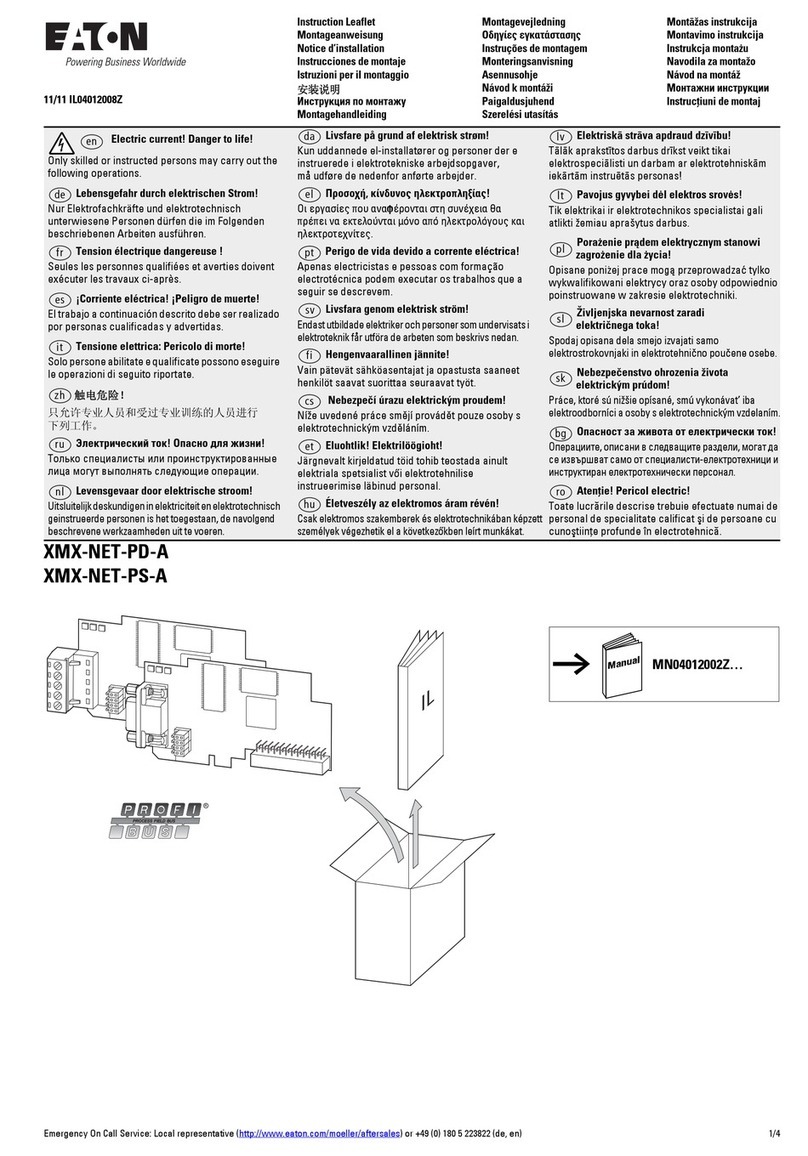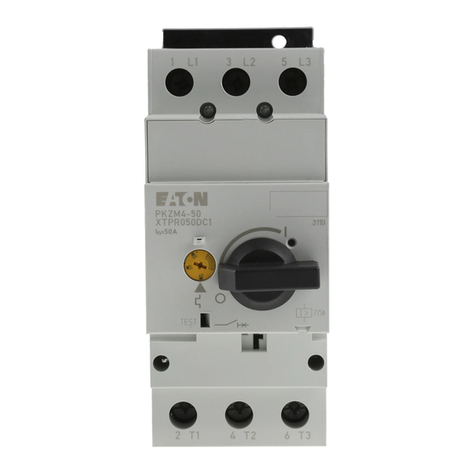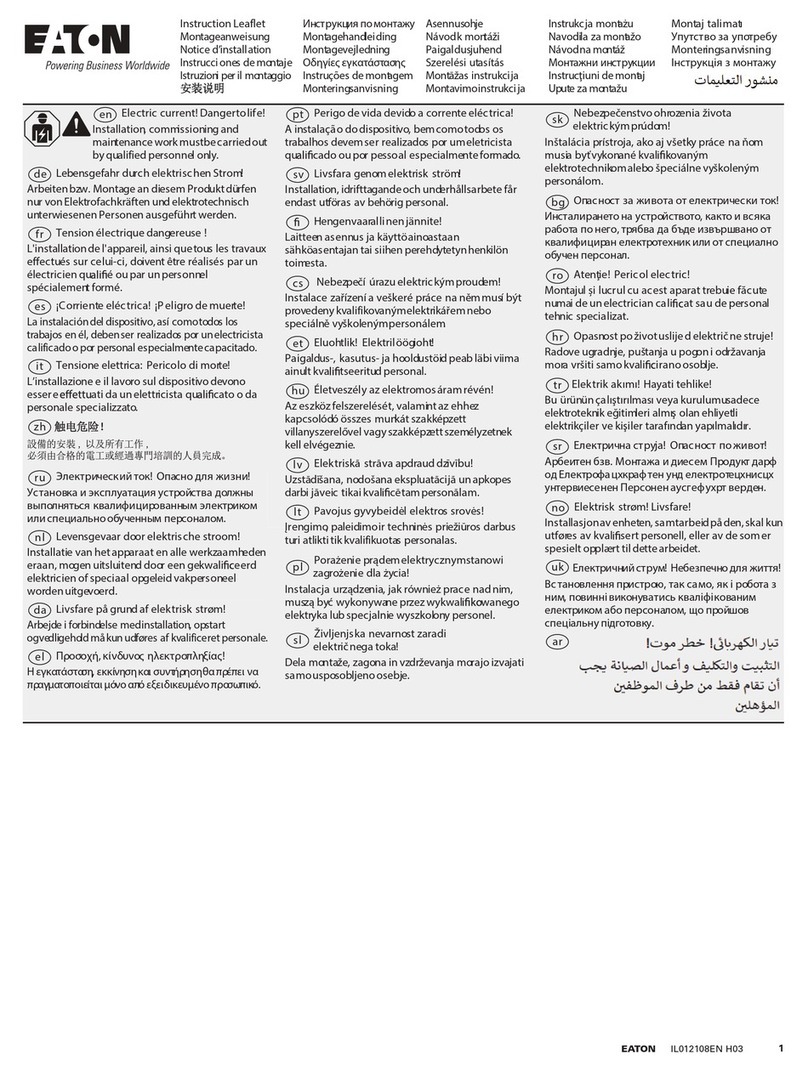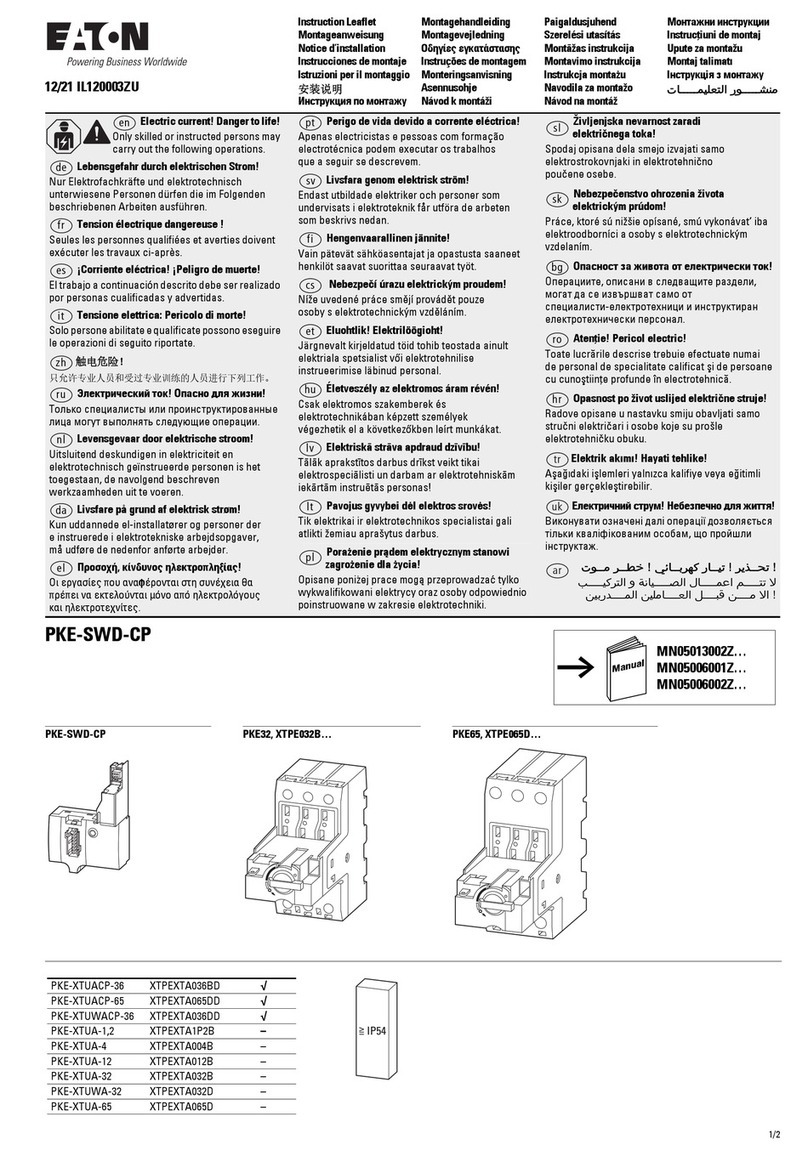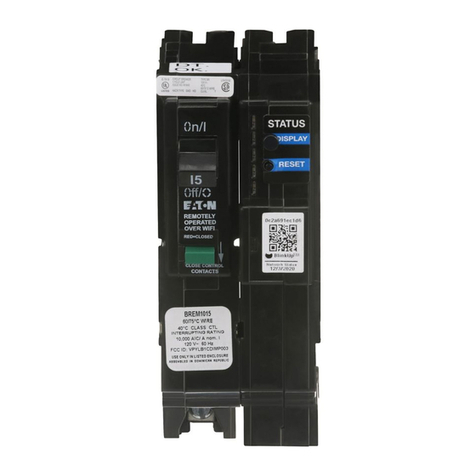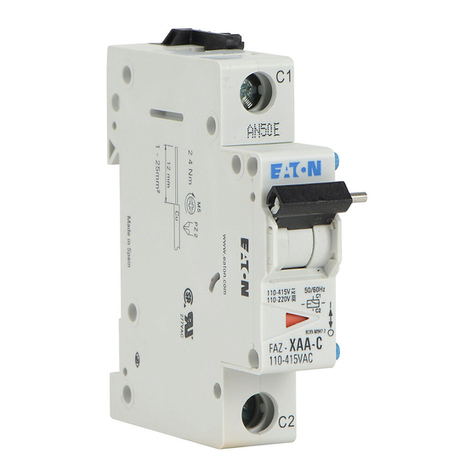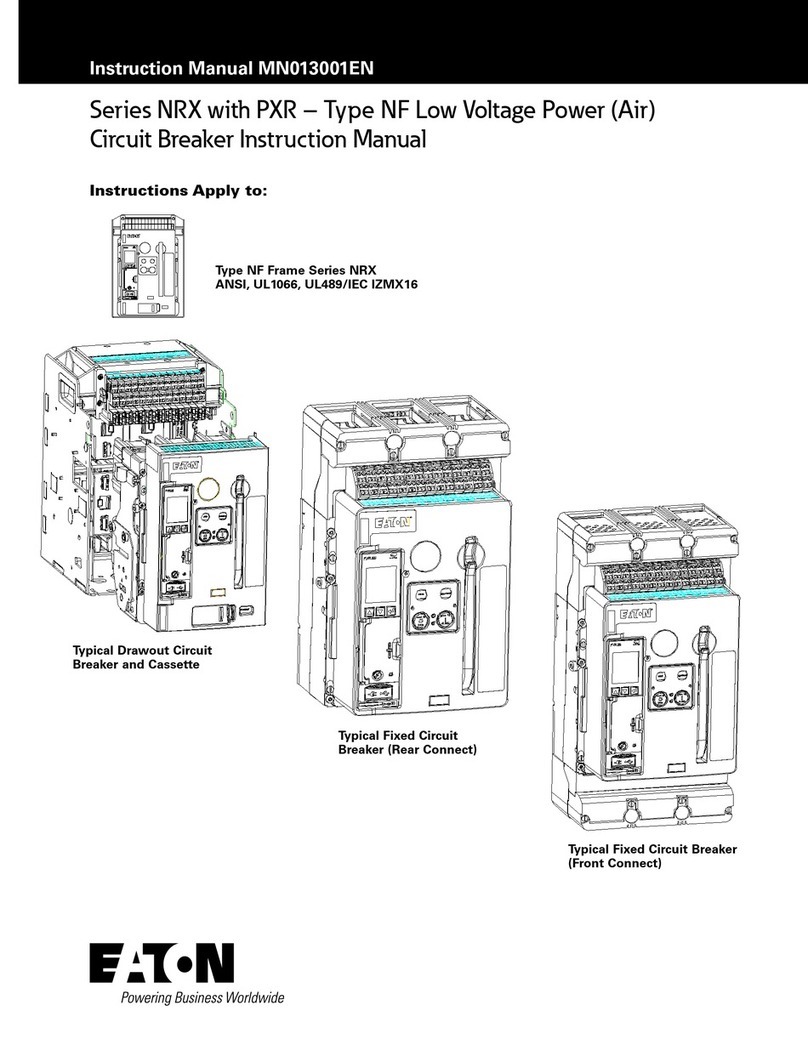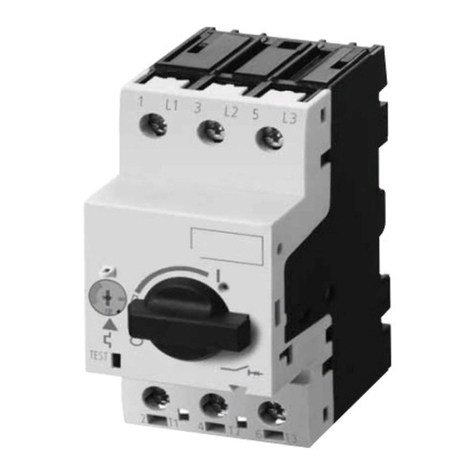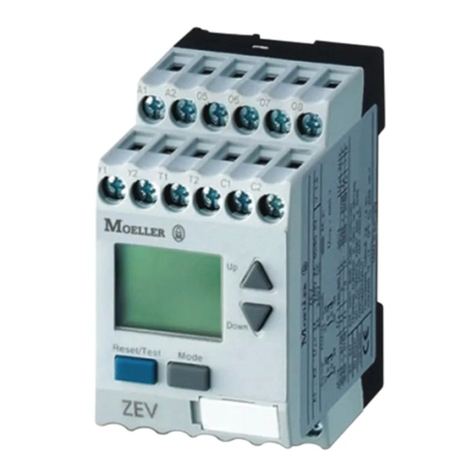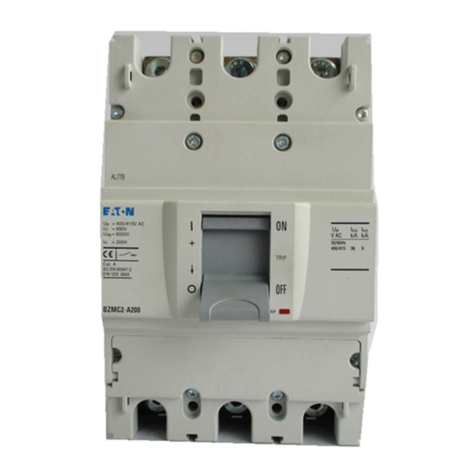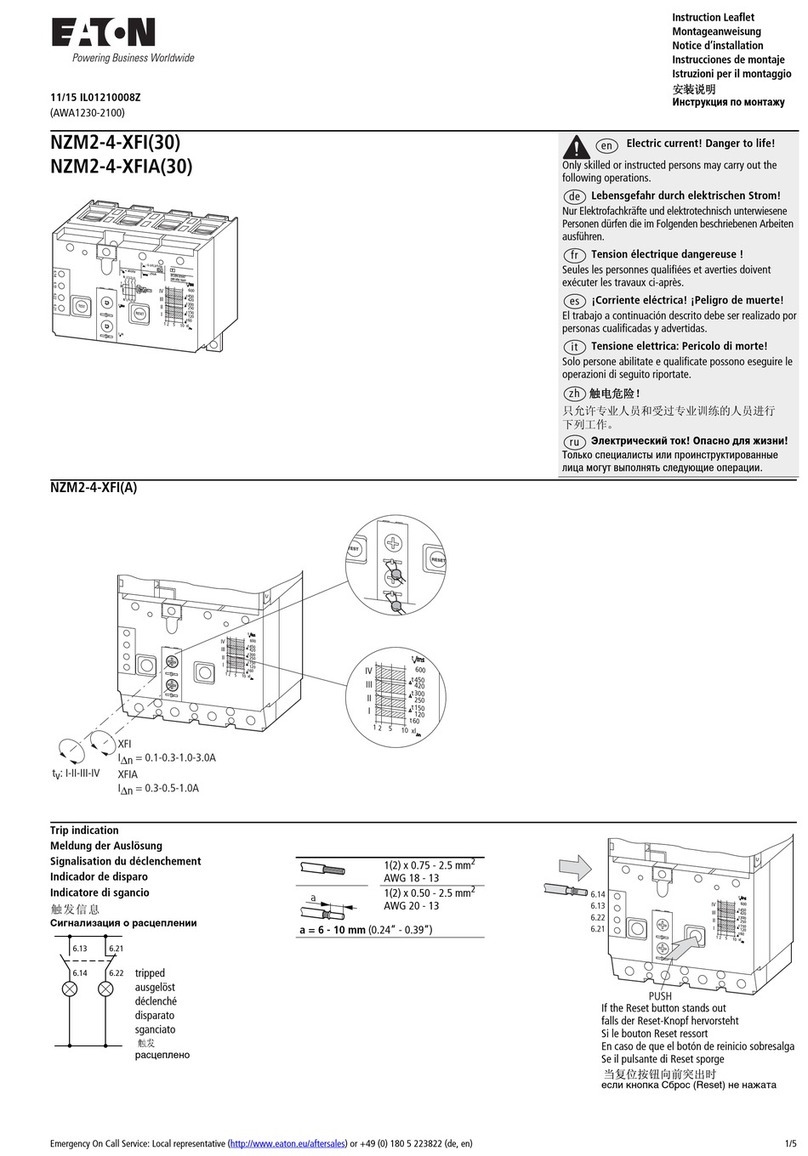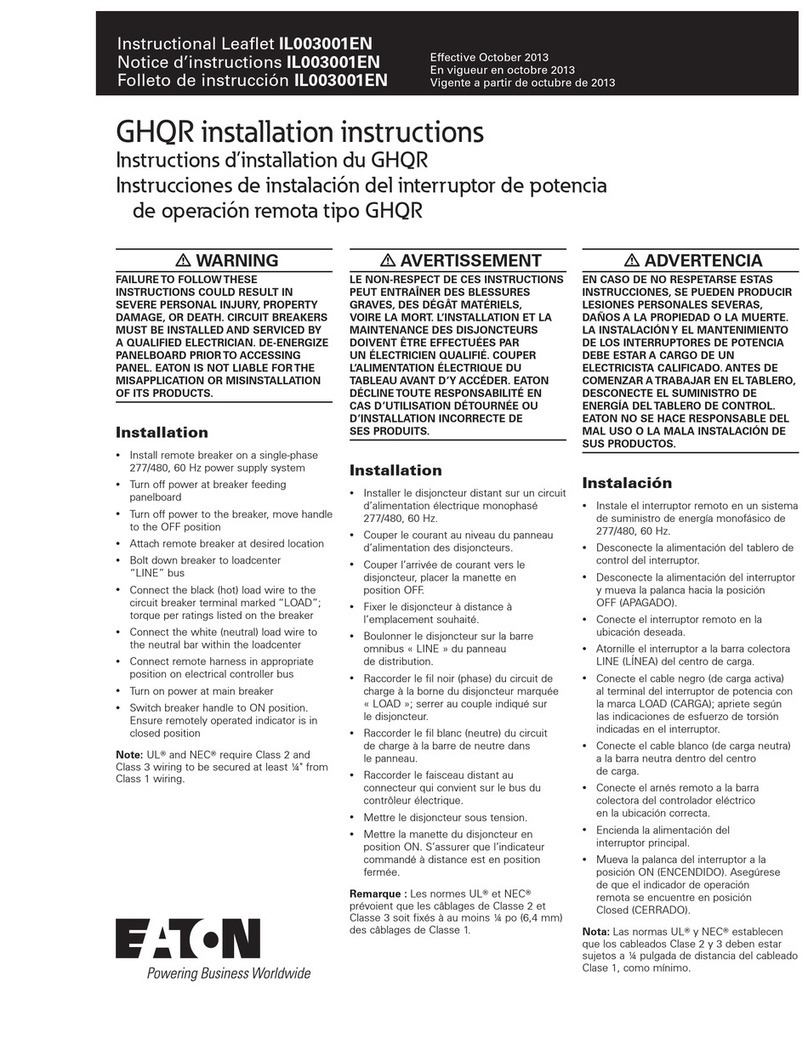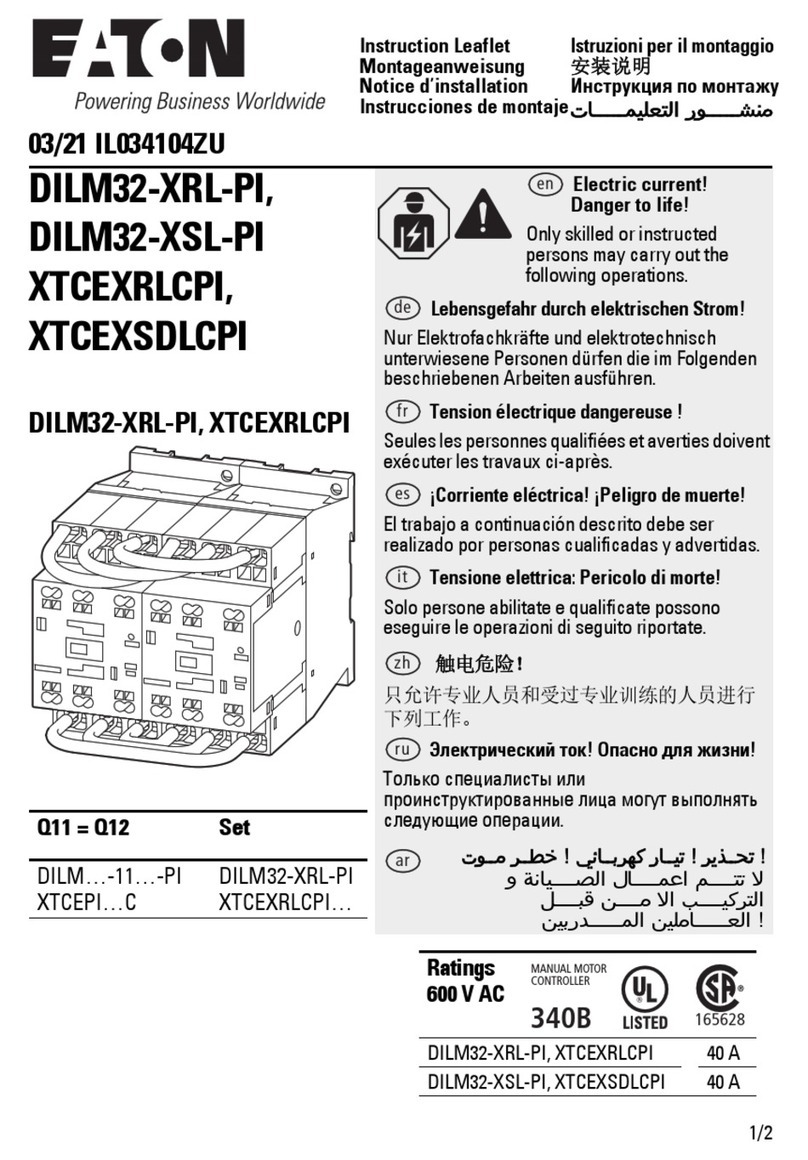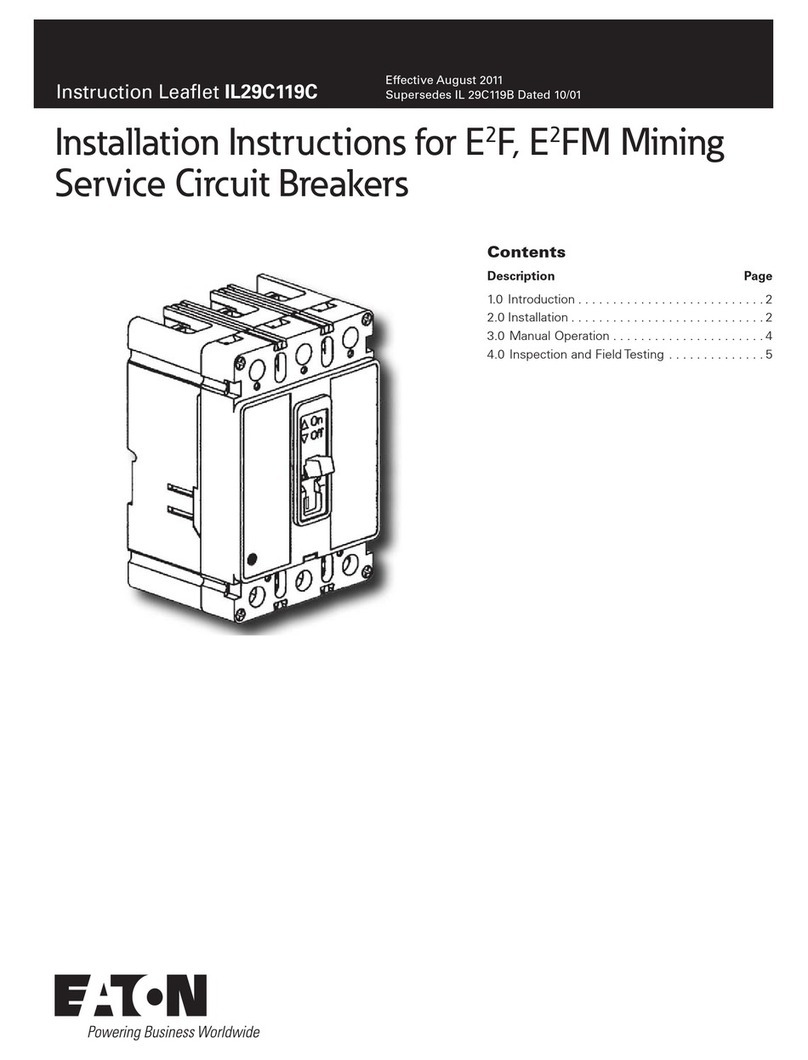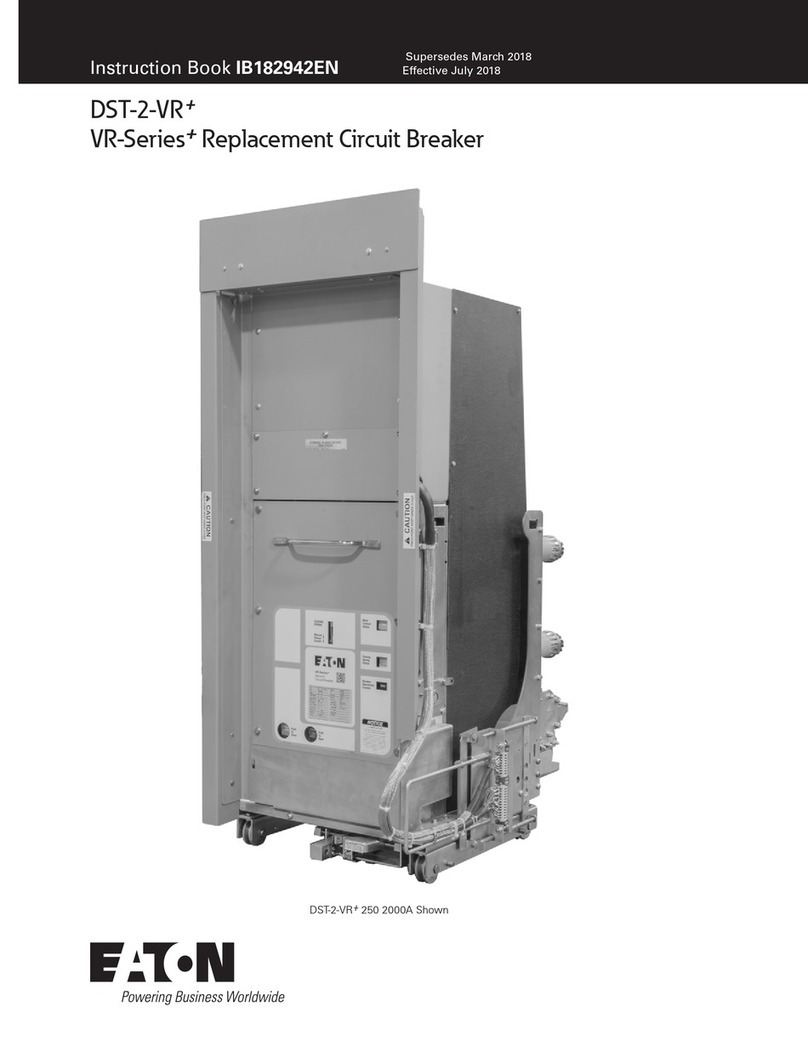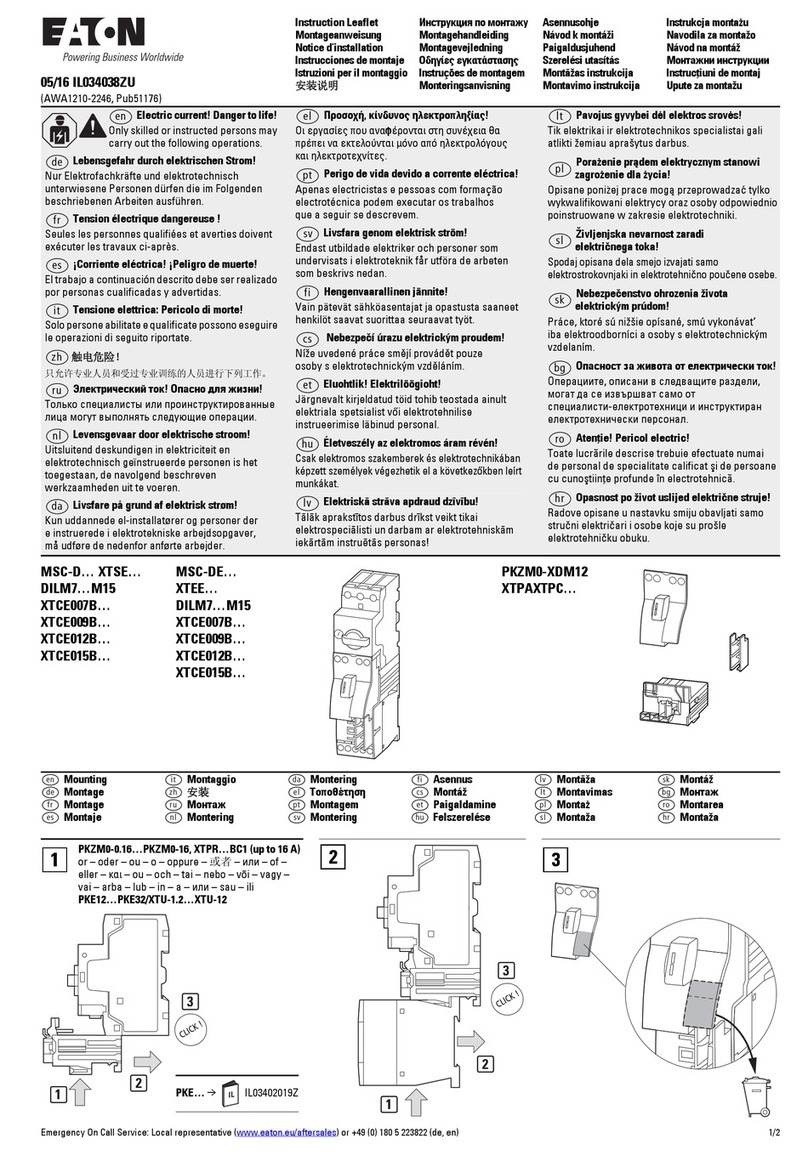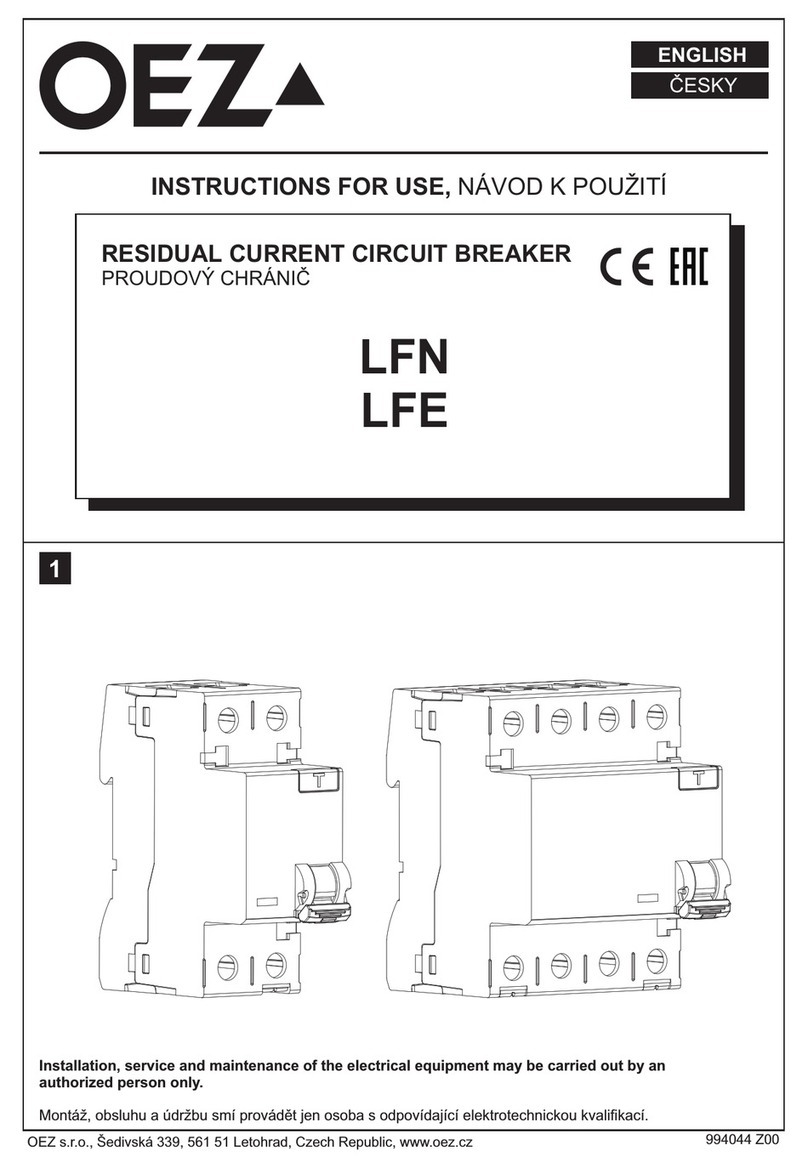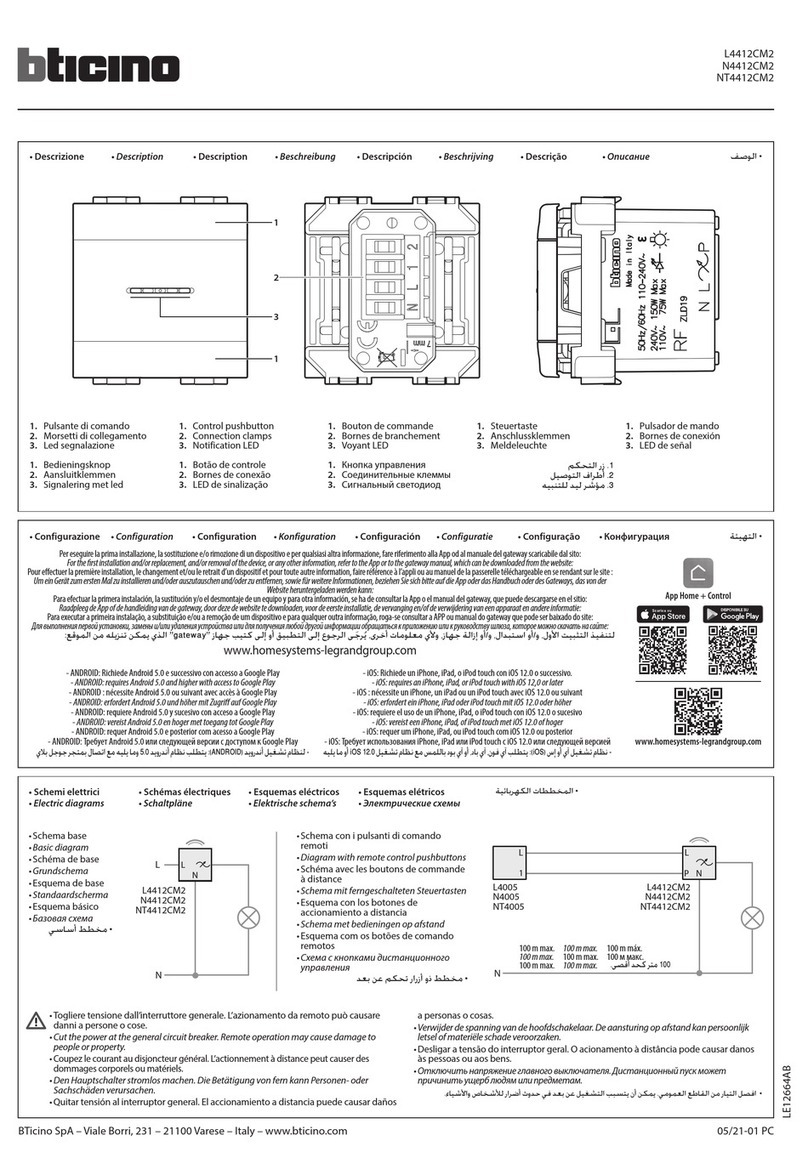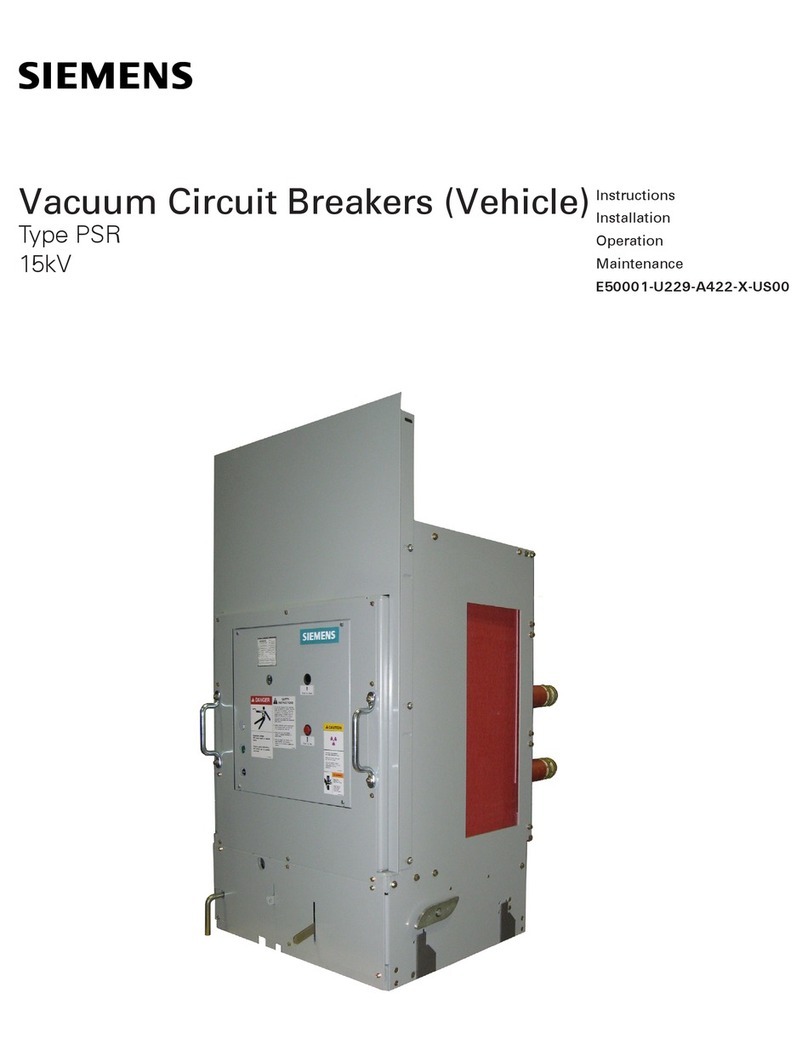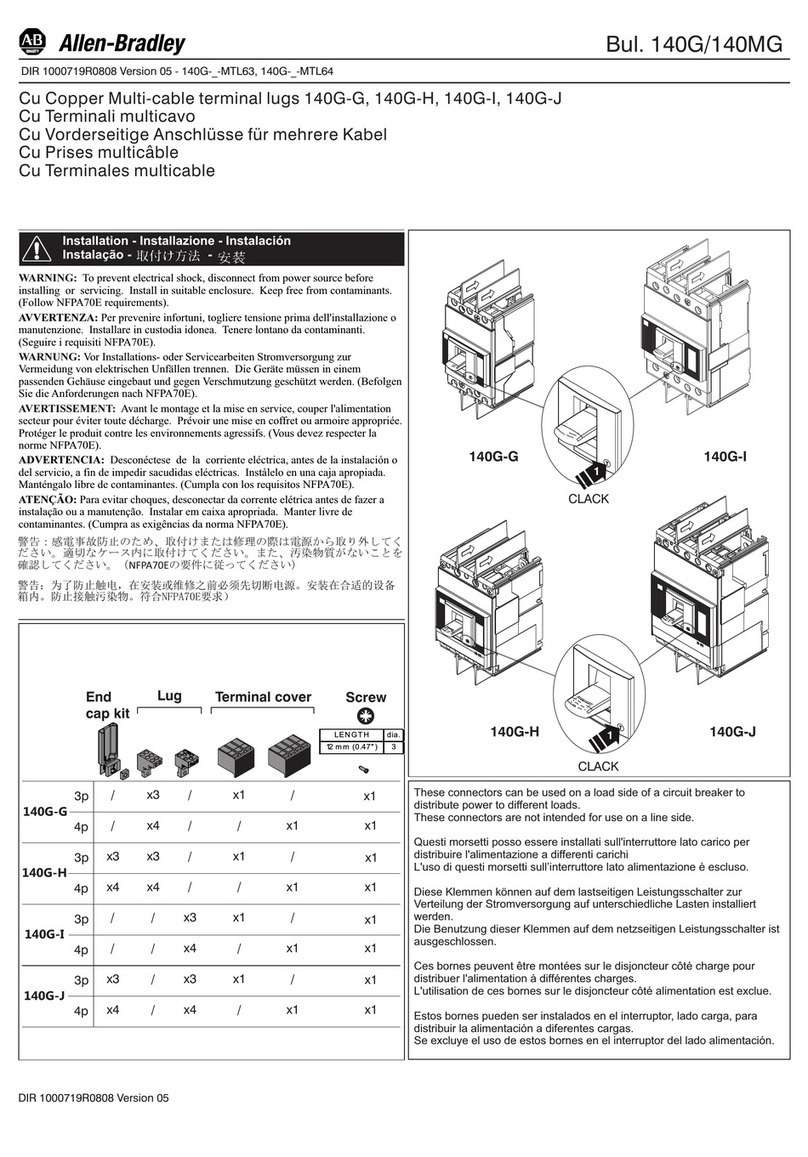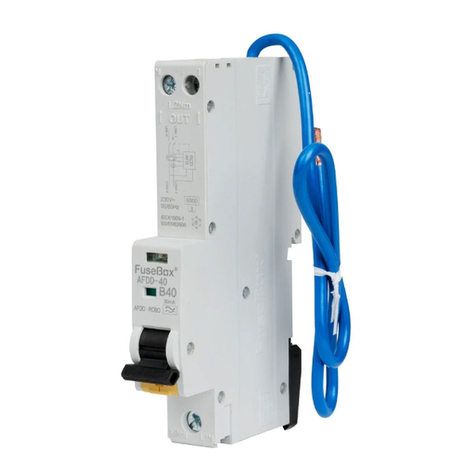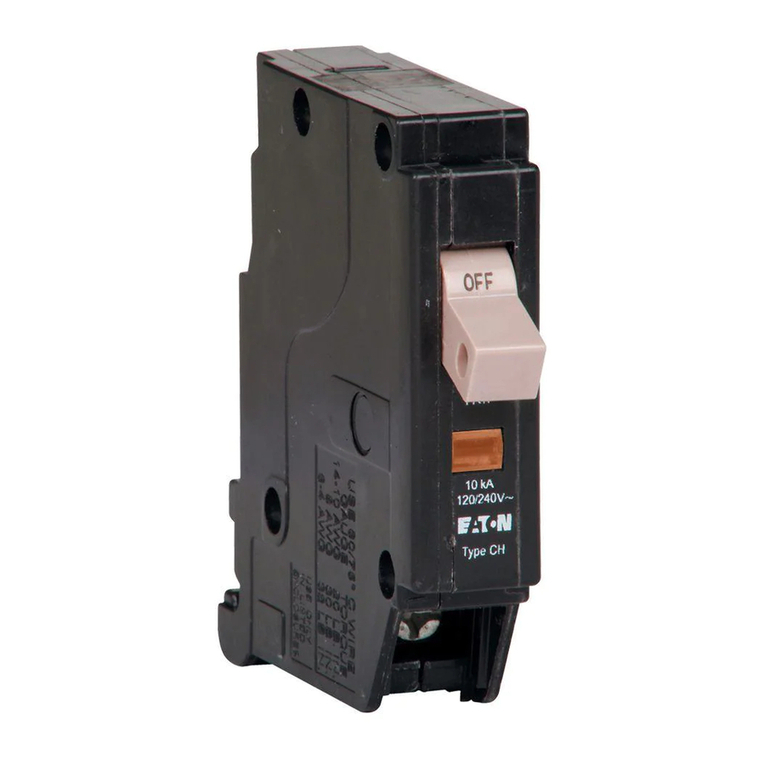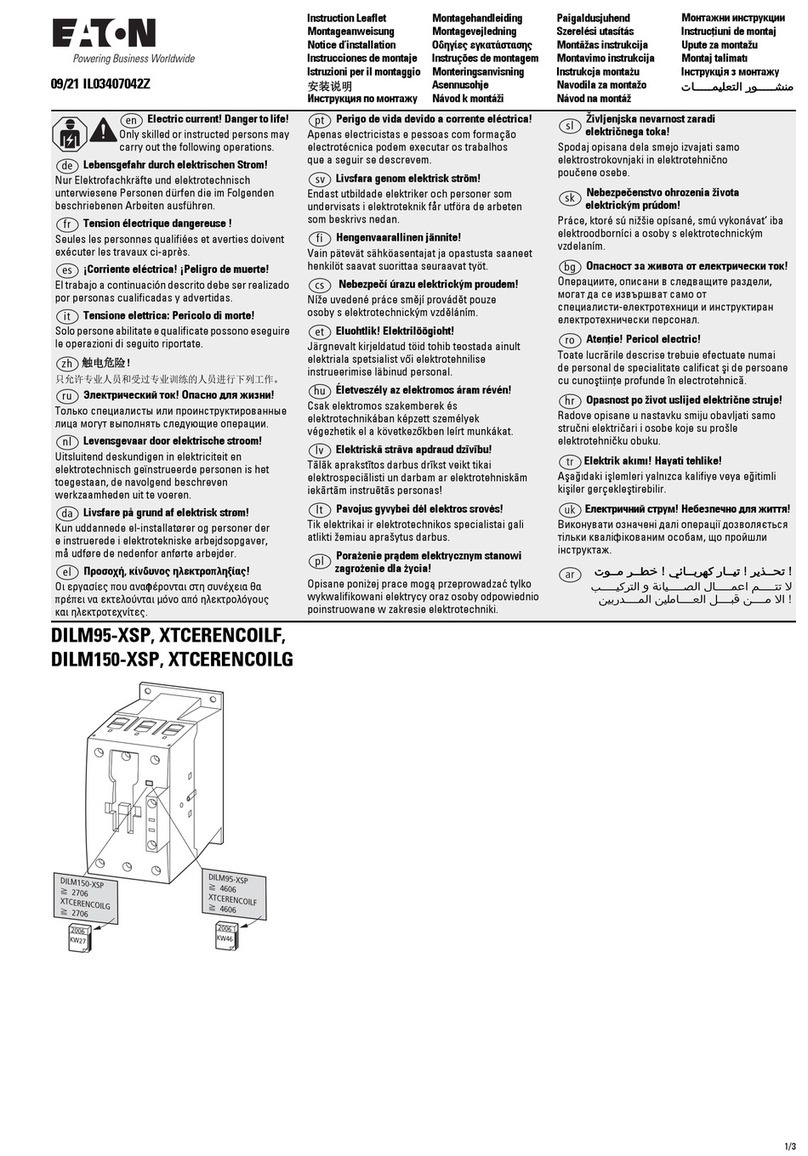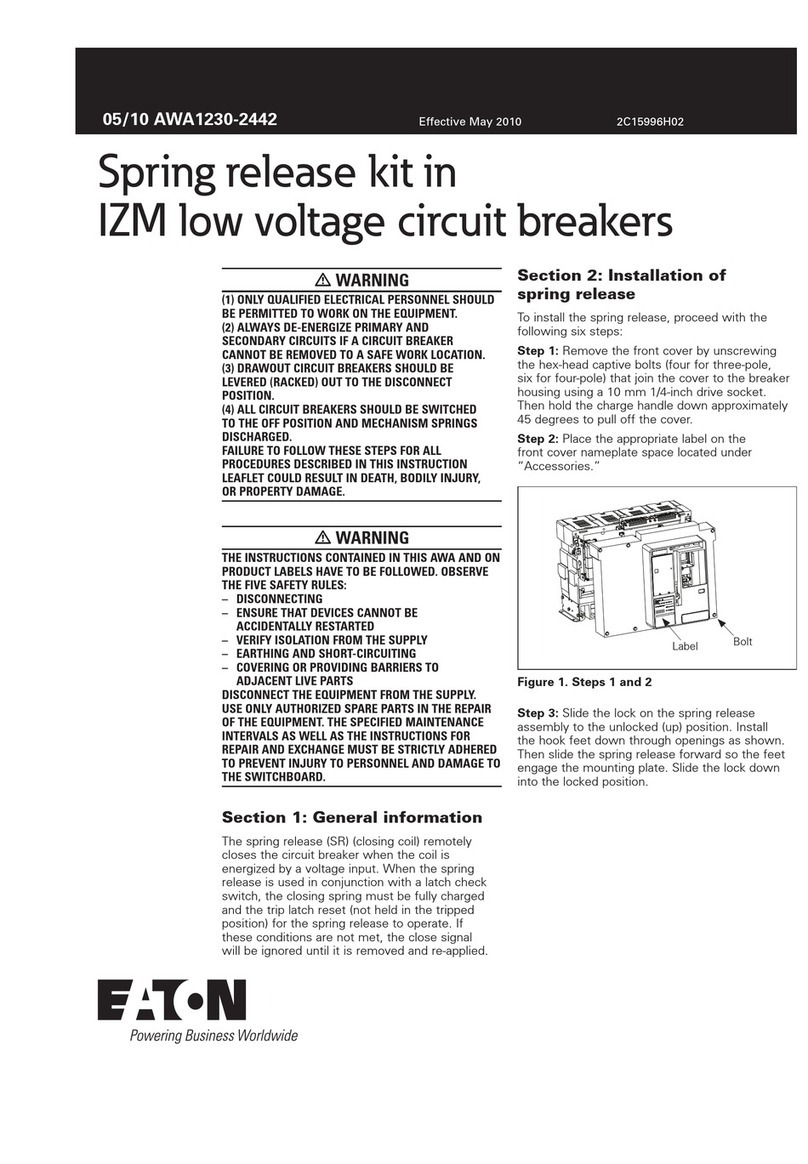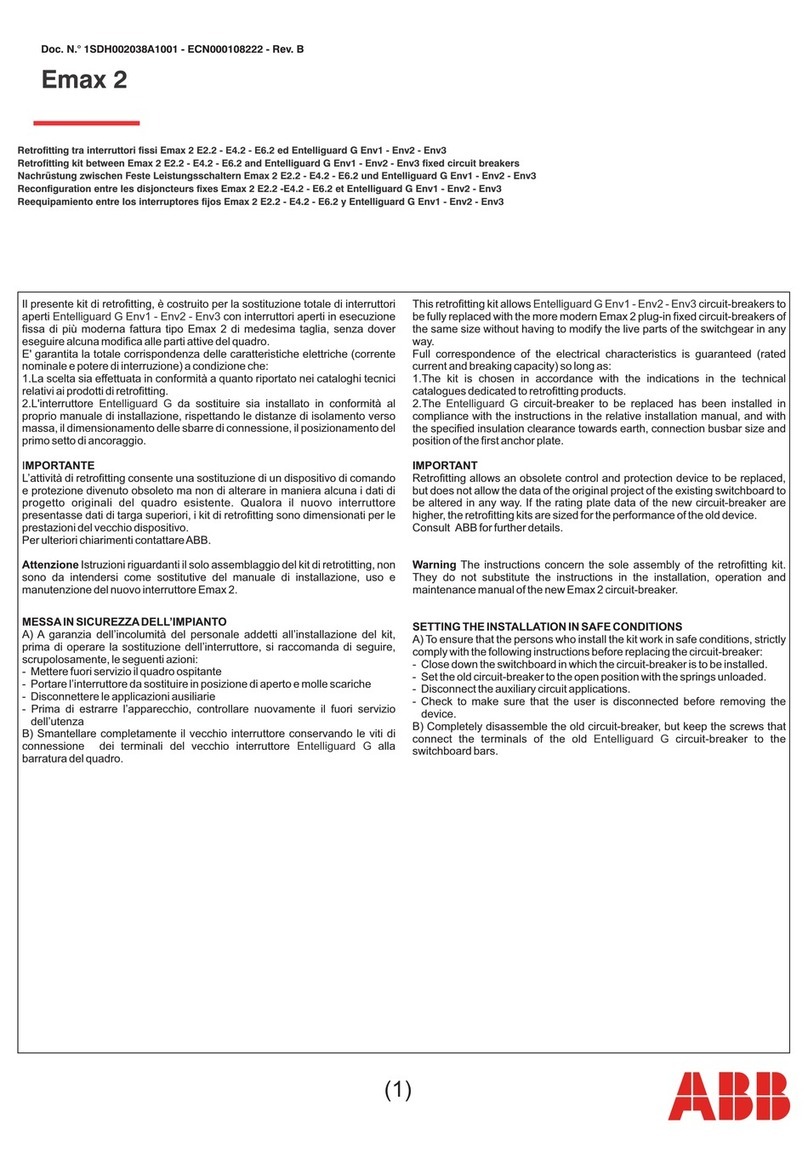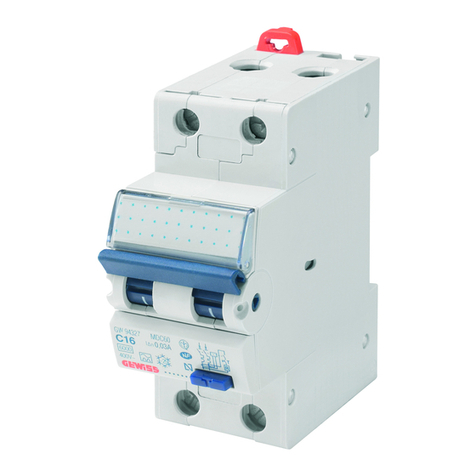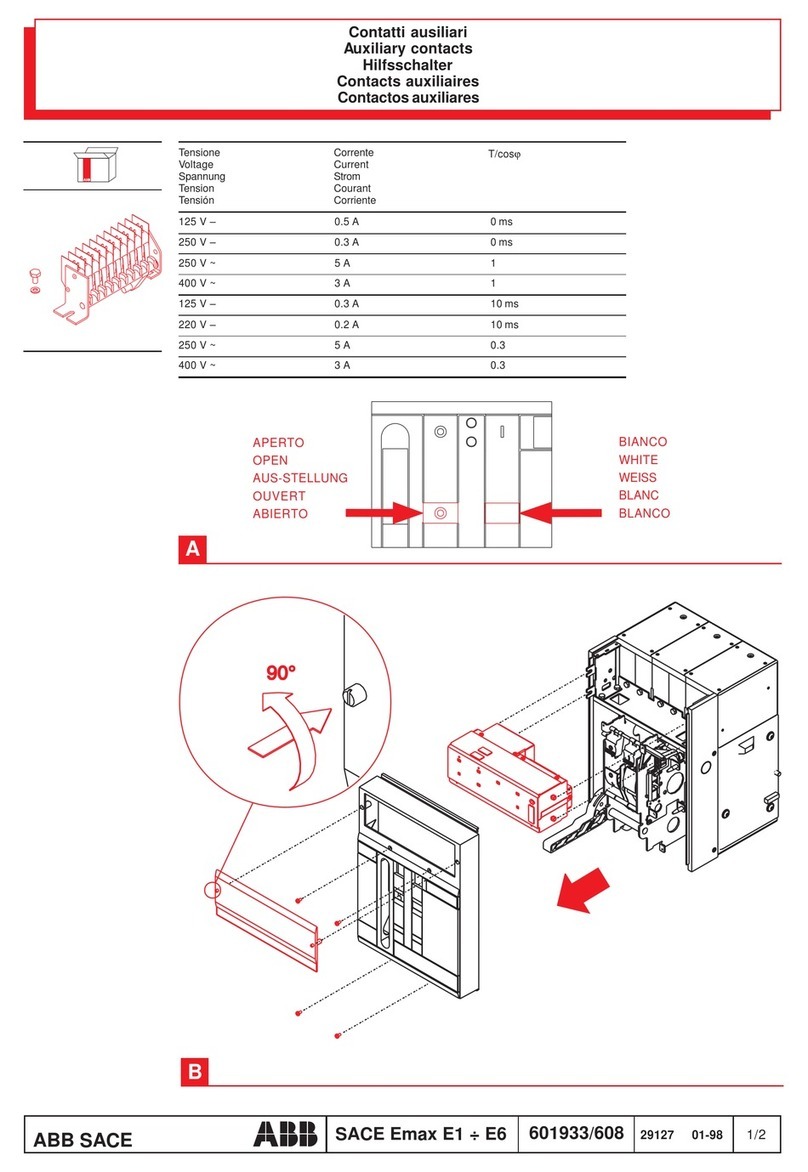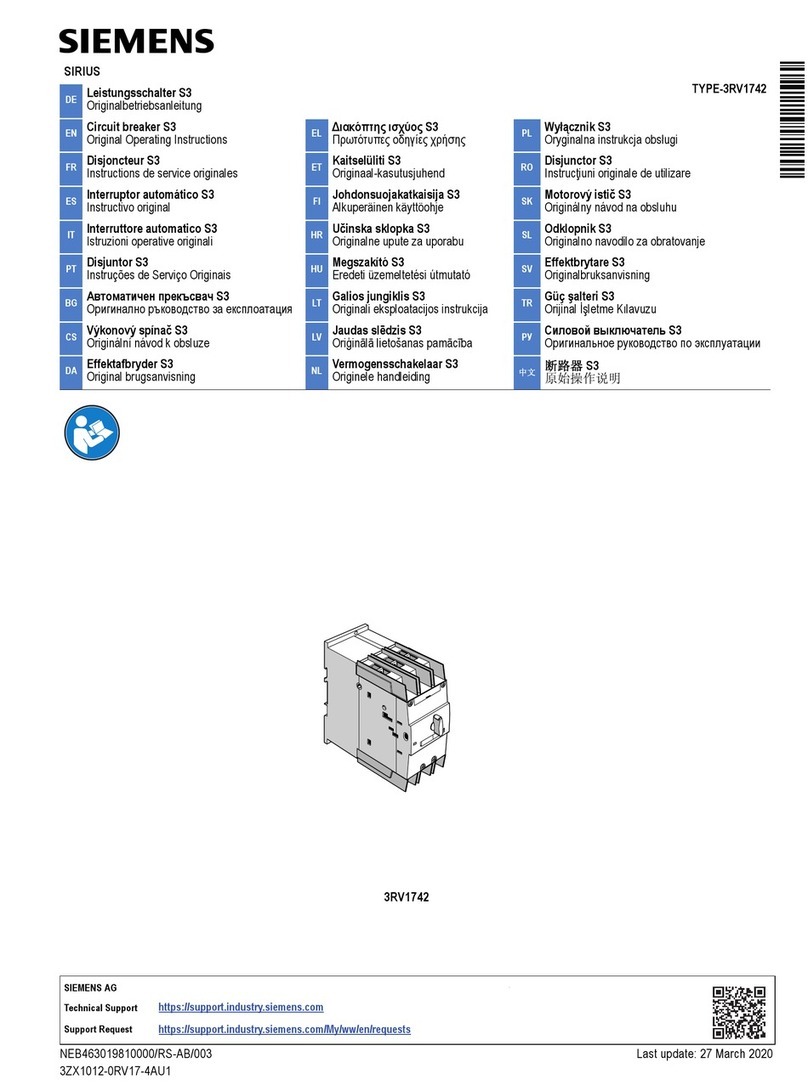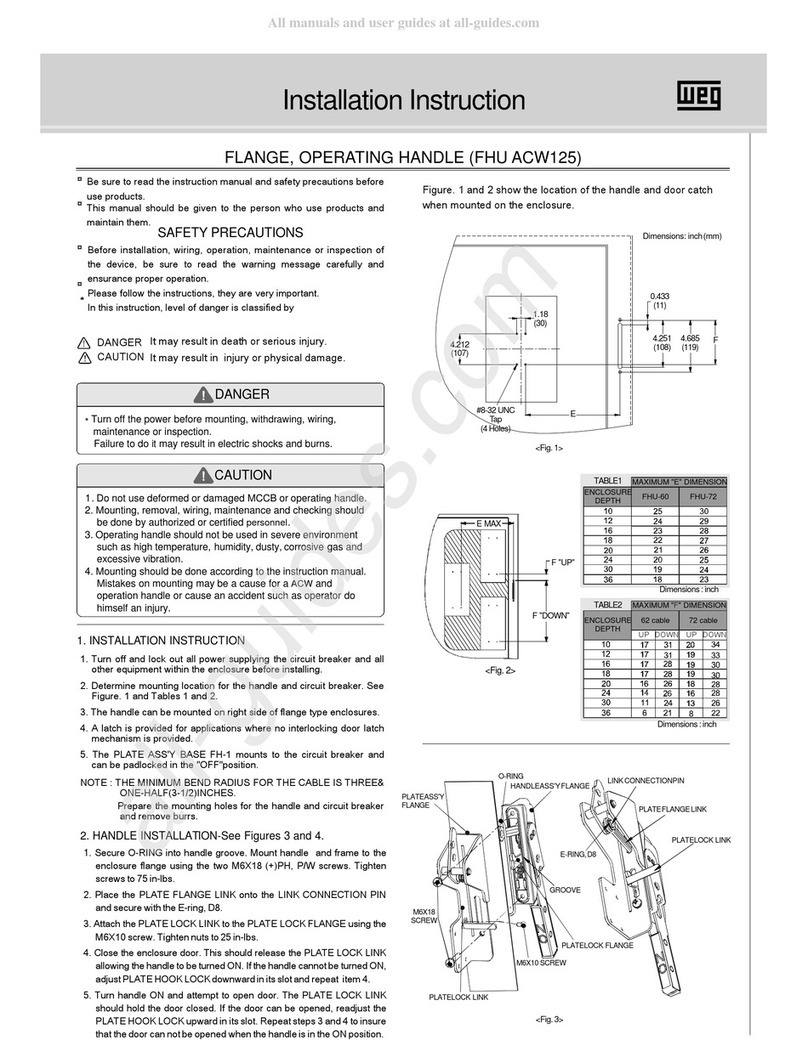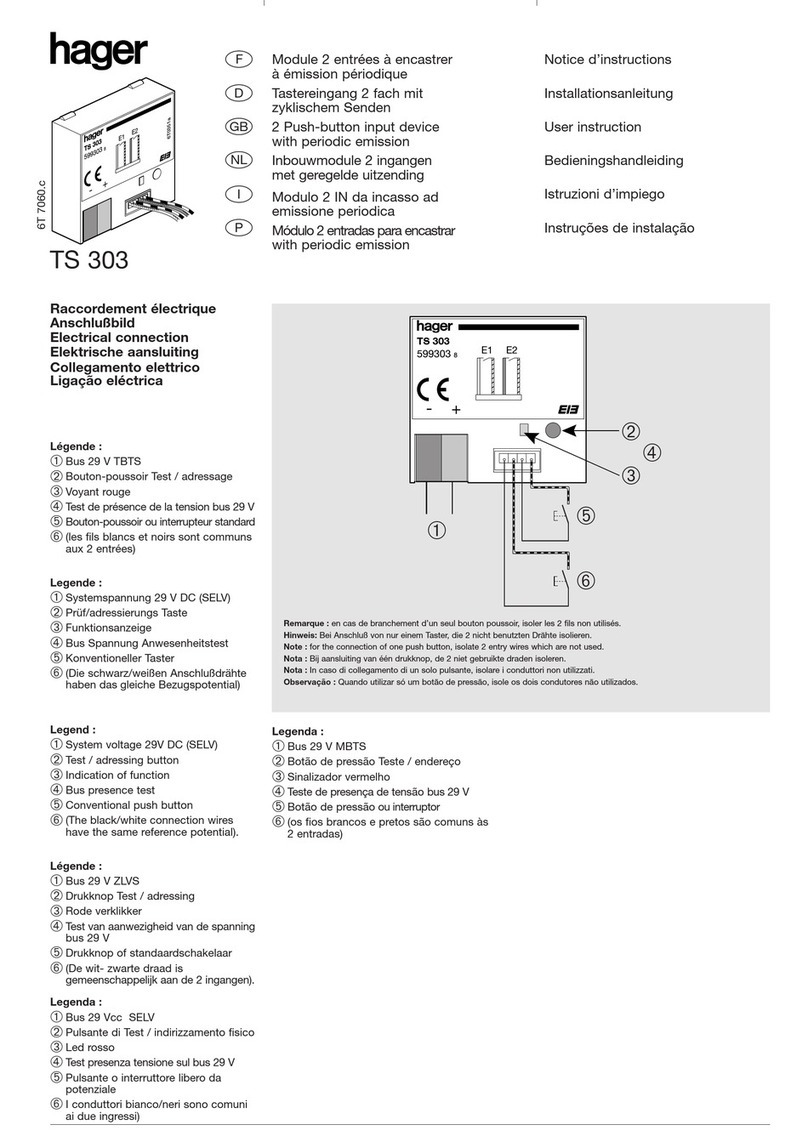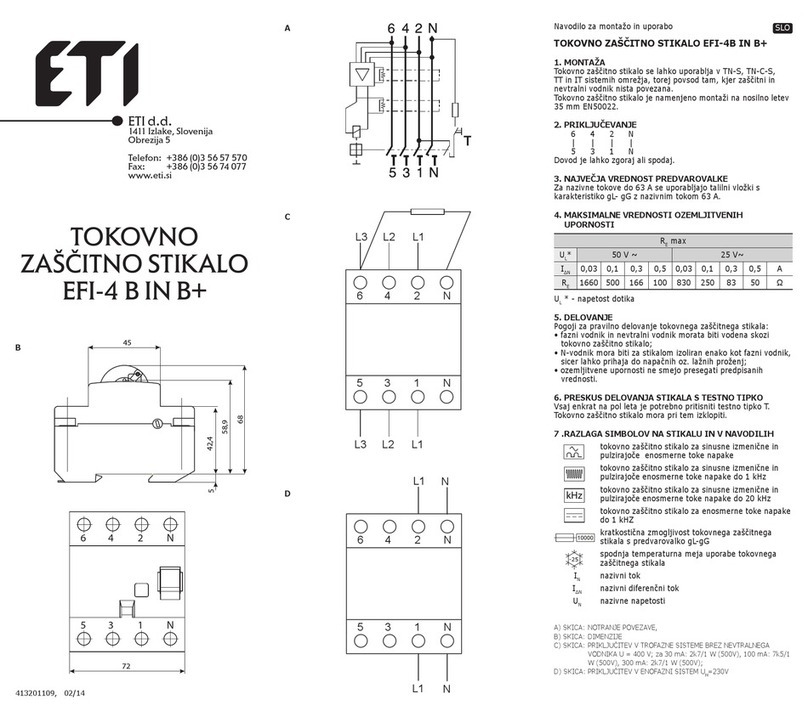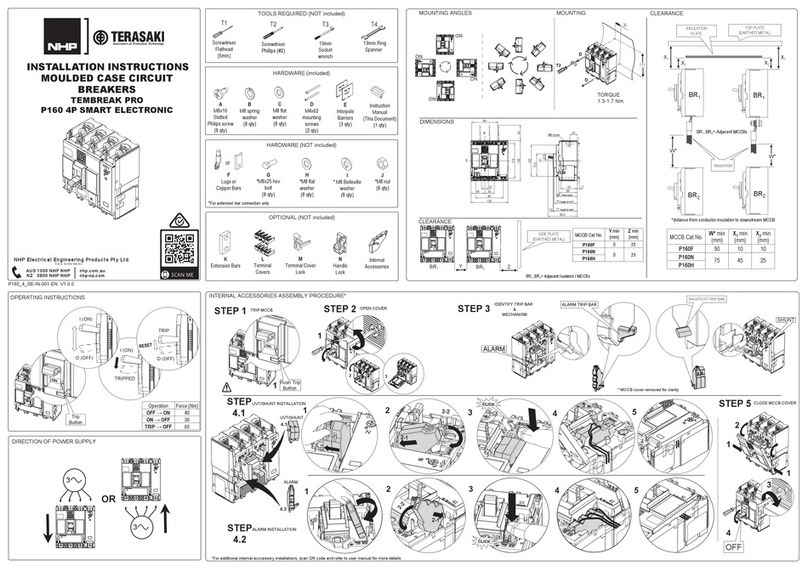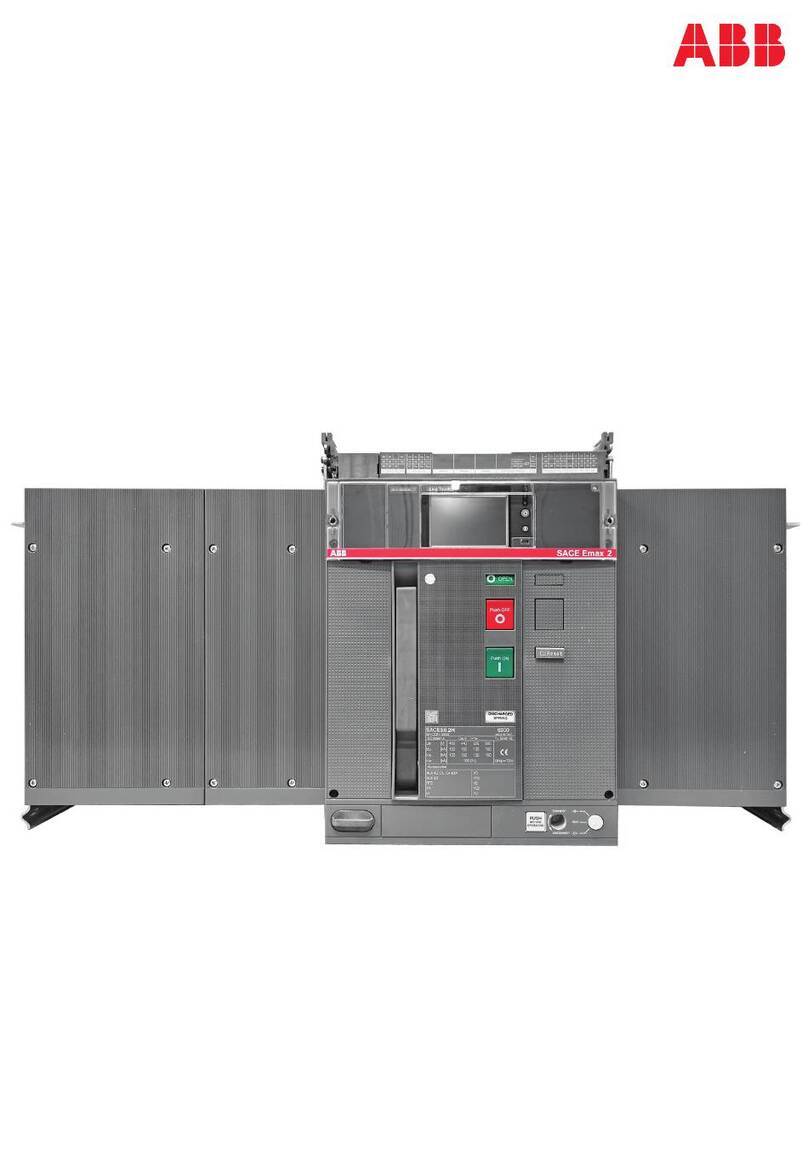
4
Instruction Leaflet IL012052EN
Effective November 2014
Instructions for Drilling and Assembling High Performance Flex
Shaft™ and Dual Flex Shaft™ Handle Mechanism for F-Frame,
Series C Circuit Breakers, Molded Case Switches, and HMCPs
EATON www.eaton.com
Figure 6. Assembly of Spring to Toggle Mechanism.
3. Alternate Installation
mWARNING
BEFORE ANY INSTALLATION OR MAINTENANCE IS PERFORMED, MAKE
SURE THAT THE BREAKER IS NOT ENERGIZED.
In the event a customer must disassemble the pre-assembled Flex
Shaft handle mechanism, the procedure listed below must be fol-
lowed before continuing with the "Installation" instructions (see
Figure 4).
1. Remove the flat washer, lock washer, and nut assembly.
2. Loosen the bulkhead connectors and remove Flex Shaft from the
actuator mechanism. The shaft may not be routed as required.
3. Place circuit breaker in the "ON" position.
4. Place the operating handle in the full "ON" position.
5. Replace the Flex Shaft through the actuator mechanism. Center
the bulkhead connectors on the threaded portion and tighten to
approximately 70 in.-lb (7.91 N●m).
6. Place the formed cutout in the slider plate over the breaker
handle while still in the "ON" position. Turn the lifting washer/nut
until it is flush against the slider plate.
7. Replace the flat washer, lock washer, and nut assembly for the
Flexible Shaft assembly. Tighten both nuts to approximately
45 in.-lb (5.08 N●m).
8. Check the operation of mechanism for "ON", "OFF", and "RESET".
Check the reset position of the actuator mechanism, that the
lifting nut and sleeve of shaft do not come in contact with each
other (see Figure 4). If they do, move the bulkhead connectors
accordingly. If the mechanism functions incorrectly, repeat the
procedure or go to Adjustment Checklist.
Adjustment Checklist
Situation:
Breaker turns "ON" and "OFF", but will not Reset when tripped.
Adjustment:
Loosen the lifting washer/nut while tightening the washer/lock
washer/nut. Two or three turns should be sufficient (see Figures 3
and 4).
ote:N Check the reset position of the actuator mechanism, so that the lifting
nut and sleeve of the shaft do not come into contact with each other (see
Figures 3 and 4). If they do, move the bulkhead connectors accordingly.
Situation:
The breaker resets after tripping, but does not turn "ON".
Adjustment:
For a K-Flexible Shaft Assembly, loosen the washer/lock washer/nut
on the end of the shaft while tightening the lifting washer/nut until
the breaker turns "ON" with positive action. Tighten both nuts and
recheck for "ON", "OFF",and "Reset" positions (see Figures 3 and 4).
ote:N After adjustment, be certain to have a minimum of one thread past the
washer/lock washer/nut assembly (see Figures 3 and 4).
If any other adjustment problems should arise, contact your local
Eaton representative.
